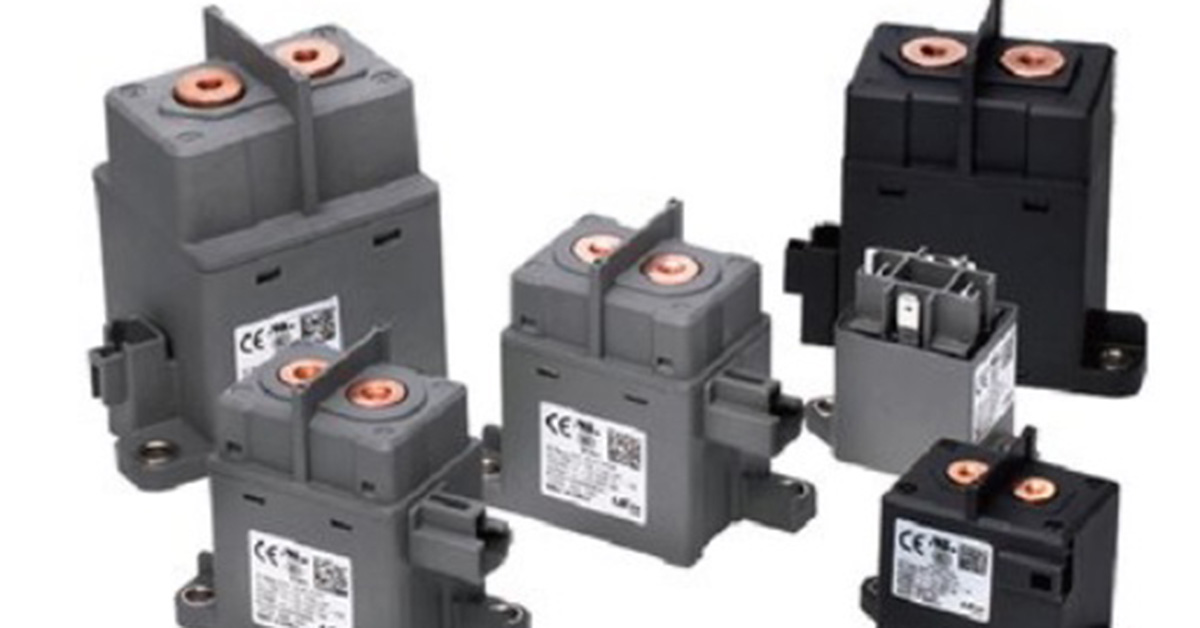The growth of the rear industry on electric vehicles is striking. In line with the industry transition from internal combustion locomotives to electric vehicles, the electric vehicle parts and materials related industries are also accelerating. High-voltage wires and battery materials suitable for electric vehicles are typical rear industries. Experts said, “Because electric vehicles are structurally different from existing internal combustion vehicles, it is a positive opportunity in that a new industry can grow.”
![The relay for electric vehicles produced by LS Electric. It connects or disconnects battery energy. [사진 LS일렉트릭]](https://i0.wp.com/pds.joins.com/news/component/htmlphoto_mmdata/202101/24/b5ce45a3-34b5-455c-8c66-aa7e3dc633bc.jpg?w=560&ssl=1)
The relay for electric vehicles produced by LS Electric. It connects or disconnects battery energy. [사진 LS일렉트릭]
Increased demand for electric vehicle relays and wires
LS Group, which has consistently invested in the electricity-related industry, is prominent in the electric vehicle parts market. Within the group, LS Electric and LS Cable & System are leading this. LS Electric significantly increased its EV relay sales last year compared to the previous year. The relay is a roadblock-like component that supplies electric energy stored in a battery to a motor. The role of the relay is to cut off electricity when it is not needed, and to allow electricity to flow naturally when necessary. It works on a similar principle as a home light switch, but it has to withstand the high voltage and high current inside an electric vehicle. Therefore, it is necessary to separately produce relays for electric vehicles.
With the growth of the electric vehicle market, LS Electric’s relay sales increased by more than 20% from the previous year (43 billion won) to 53 billion won last year. In particular, in China, where electric vehicle growth is remarkable, relay sales hit 29 billion won last year. This is an increase of nearly 40% compared to 2019 (21 billion won). An official at LS Electric said, “We are producing relays at our Jiangsu Province plant in China and supplying them to the Chinese market.” “As the eco-friendly car market in China is growing rapidly, sales are expected to grow to 70 billion to 80 billion won this year.” It is increasing its share in the Chinese market against Tyco in the US and Panasonic in Japan, which are the strongest players in the electric vehicle relay tradition.
![Electric vehicle harness produced by LS Cable & System. Must withstand 600 volts or more. [사진 LS전선]](https://i0.wp.com/pds.joins.com/news/component/htmlphoto_mmdata/202101/24/4a98699b-9765-458e-977a-711fca47b74f.jpg?w=560&ssl=1)
Electric vehicle harness produced by LS Cable & System. Must withstand 600 volts or more. [사진 LS전선]
Supplied electric vehicle cables that can withstand 600 volts to Dongfeng
LS Cable & System selected the field of electric vehicle materials as one of the future foods. Based on the existing electric wire business, it has expanded its business to electric vehicle harness (automobile electric wiring system). Wires for internal combustion vehicles only have to withstand 12 volts (V), but wires for electric vehicles must withstand 600V, 50 times that of internal combustion vehicles. An LS Cable & System official said, “The aluminum wire for electric vehicles is more than 40% lighter in weight than the existing copper wires. We are supplying our own harness to Dongfeng Motor and BDNT in China, and we are negotiating the supply of products with domestic companies.” LS Cable & System is a unique example of successful U-turn to the domestic market after being recognized for its quality in the Chinese electric vehicle market. LS Cable & System, which increased its electric vehicle parts, saw sales of electric vehicle parts from 60 billion won in 2019 to 100 billion won last year.
Chimney Industry POSCO also invests in the electric vehicle rear industry
POSCO, one of the leading companies in the chimney industry, is in a hurry to switch to the electric vehicle material industry. POSCO Chemical, which produces cathode materials and anode materials, which are battery materials, succeeded in a paid-in capital increase of 1.3 trillion won on the 15th. It is the largest since POSCO was founded. POSCO Chemical is planning to increase its production capacity at domestic and overseas plants by investing 690 billion won to expand the cathode material Gwangyang plant. By 2030, cathode materials are currently expected to expand from 40,000 tons to 400,000 tons, and anode materials from 44,000 to 260,000 tons.
![SK energy is planning to expand solar power generation facilities and electric vehicle charging stations at direct gas stations in cooperation with the city of Seoul. [사진 SK에너지]](https://i0.wp.com/pds.joins.com/news/component/htmlphoto_mmdata/202101/24/99eaefe6-f7c1-43d2-b171-9edfb9906e20.jpg?w=560&ssl=1)
SK energy is planning to expand solar power generation facilities and electric vehicle charging stations at direct gas stations in cooperation with the city of Seoul. [사진 SK에너지]
Carbon fiber development, gas station is also transforming
Hyosung is developing carbon fibers for use in eco-friendly vehicles such as hydrogen electric vehicle storage containers. A Hyosung official said, “The target is carbon fiber that can be used as a hydrogen storage container for hydrogen vehicles.” Refineries are also increasing their investment in building an electric vehicle rear industry. SK Energy and the Seoul Metropolitan Government decided to install these facilities in all places where solar power generation facilities and electric vehicle charging facilities can be installed among SK gas stations and charging stations in Seoul. GS Caltex and Hyundai Oilbank are also speeding up the expansion of electric vehicle charging stations. Professor Ho-geun Lee of Daedeok University (automobile) said, “The rear industry is rapidly changing as the electric vehicle market grows,” and said, “It is an opportunity for Korean companies to preoccupy related industries.”
Reporter Kiheon Kang [email protected]
